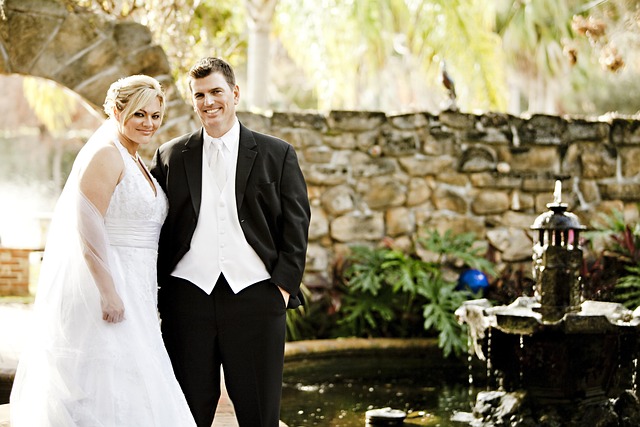Egg Donor Agencies: Empowering Same-Sex Male Couples with Ethical Donation

Specialized egg donor agencies are crucial for same-sex male couples seeking to start families throu…….
In an era where family structures are evolving, same-sex male couples are exploring diverse avenues to fulfill their desire to become parents. One such promising option gaining traction globally is the use of egg donors, a process that has opened doors to building families for these couples. This article delves into the multifaceted world of egg donation within the context of same-sex male partnerships, exploring its implications, benefits, and challenges. By examining various aspects, from historical developments to future prospects, we aim to provide an insightful guide to understanding this modern approach to family formation.
Egg donation for same-sex male couples involves a medical procedure where a healthy woman, known as the egg donor, provides her oocytes (eggs) for in vitro fertilization (IVF). This process enables same-sex male partners to conceive biological children. The core components include:
The concept of egg donation has roots in the early days of assisted reproductive technology (ART). However, its application to same-sex male couples is a relatively recent development. Historically, ART was primarily associated with heterosexual couples facing infertility issues. With advancements in medical science and shifting societal norms, the use of egg donors for LGBTQ+ individuals gained prominence. This evolution reflects a growing acceptance of diverse family structures and a desire to provide equal opportunities for parenthood.
Egg donation for same-sex male couples is a global phenomenon, with varying levels of adoption and legal recognition across countries. Its significance lies in several factors:
The global impact of egg donation for same-sex male couples is evident in the increasing number of countries legalizing and regulating this practice. Key trends include:
| Region | Legal Status | Notable Developments |
|---|---|---|
| North America | Legal in most states/provinces | Canada became one of the first countries to explicitly legalize egg donation for same-sex couples |
| Europe | Legal in many countries | UK’s Human Fertilisation and Embryology Act (2008) allows anonymous donation, a popular choice among LGBTQ+ couples |
| Asia Pacific | Mixed legalities | Japan permits egg donation but has strict regulations; Australia is considering legislative changes to expand access |
| Middle East | Legal in some countries | Lebanon and Israel have progressive laws supporting same-sex parenthood through ART |
| Latin America | Varies by country | Brazil allows donation among friends and relatives, while Mexico has made strides toward legalizing it for all couples |
Regional differences in legislation and cultural attitudes significantly influence the accessibility and popularity of egg donation within same-sex male couples. Countries with more progressive laws and open-minded societies tend to have higher rates of adoption. For instance, Scandinavian nations are known for their inclusive policies, while some Middle Eastern countries have more restrictive approaches. These variations shape the experiences and outcomes for LGBTQ+ individuals seeking parental paths.
The egg donation market is a specialized segment within the broader assisted reproductive technology industry. Key economic aspects include:
Financial investments in the field include research and development, clinic infrastructure, and marketing campaigns. Private clinics and pharmaceutical companies play significant roles in shaping the market. Additionally, government funding for ART, including egg donation programs, varies across countries, influencing accessibility and cost-effectiveness.
The financial burden of egg donation can be substantial for same-sex male couples. Expenses include donor compensation, medical procedures, legal fees for adoption, and potential travel costs. Many countries offer subsidies or insurance coverage for ART, but the overall cost remains a consideration for prospective parents.
With advancements in medical technology, egg donation procedures have become safer and more successful. Key factors contribute to their effectiveness:
The advantages of egg donation for these couples are numerous:
Egg donation raises various ethical debates, particularly regarding anonymous donation and compensation. Questions arise about donor rights, the impact on potential children’s identities, and the commercial aspect of reproduction. Balancing individual autonomy with potential psychological impacts is essential.
Donors may experience emotional involvement, while recipients deal with anticipation and uncertainty. Psychological support for all parties is crucial to navigate these emotions. Additionally, donor anonymity can pose challenges in building open communication within families.
Variations in legal frameworks across countries create complexities. Same-sex male couples often face navigation of multiple jurisdictions when seeking donation services and legal recognition of parenthood. Harmonizing regulations globally would enhance accessibility and consistency in these practices.
Advocacy groups and medical professionals are pushing for greater accessibility to egg donation services, especially in regions with limited options. Efforts focus on:
Research continues to drive innovations in reproductive medicine:
Building social acceptance is vital for normalizing same-sex male couples’ journeys to parenthood. Support groups, community initiatives, and celebrity advocacy contribute to creating a supportive environment, fostering open dialogue about family formation through egg donation.
Q: Is egg donation safe for the donor?
A: Yes, with proper medical supervision, egg donation is generally safe for donors. However, as with any medical procedure, there are risks and potential side effects. Thorough screening and monitoring ensure the safety of both donors and recipients.
Q: Can same-sex male couples adopt using egg donation?
A: While adoption is a separate process, many countries allow single individuals or couples to adopt using ART, including egg donation. Legal frameworks vary, so consulting legal experts is essential.
Q: How do I find an egg donor? Is it anonymous?
A: Finding a donor often involves working with specialized clinics or agencies that facilitate the process. Donor anonymity is a common choice, ensuring privacy for both parties. However, some couples prefer known donation arrangements for various reasons.
Q: Are there financial aid options available for egg donation?
A: Financial assistance programs exist in some countries to support individuals seeking ART treatments, including egg donation. Exploring government initiatives or private scholarships can help alleviate financial burdens.
Q: Can same-sex male couples use their own eggs for IVF?
A: In cases where one partner has healthy eggs, they can be used for IVF. However, many factors influence fertility, and consulting with medical professionals is crucial to assess individual circumstances.
This comprehensive overview highlights the multifaceted world of egg donation for same-sex male couples, encompassing medical advancements, ethical considerations, and future prospects. As society evolves, so too does our understanding of family formation, offering hope and opportunities for prospective parents worldwide.

Specialized egg donor agencies are crucial for same-sex male couples seeking to start families throu…….

Surrogacy with egg donation for gay parents involves selecting a donor, collecting and freezing her…….

For same-sex couples aiming to start a family through IVF, understanding egg donor selection is key……..

Surrogacy with egg donation for gay parents involves a surrogate carrying a child using donated eggs…….

For same-sex couples aiming to start a family, gestational carriers (surrogates) are key in achievin…….

LGBTQ+ families seeking egg donation face myths and misconceptions rooted in ignorance. Modern medic…….

Egg donation agencies are essential resources for gay couples seeking to start families through surr…….

LGBTQ+ couples exploring egg donation for parenthood face stigma but can overcome it through educati…….

IVF with donor eggs for male couples offers a successful path to parenthood, addressing fertility ch…….

Surrogacy with egg donation offers a path to parenthood for gay males, requiring careful selection o…….